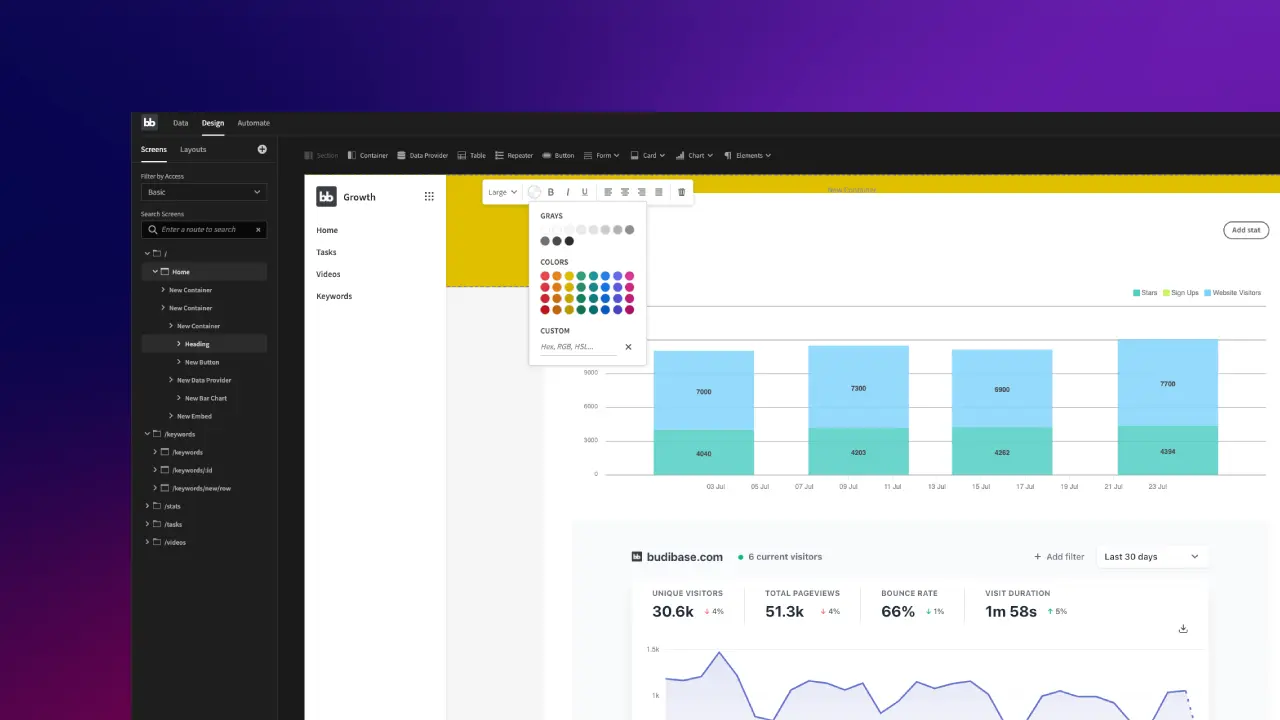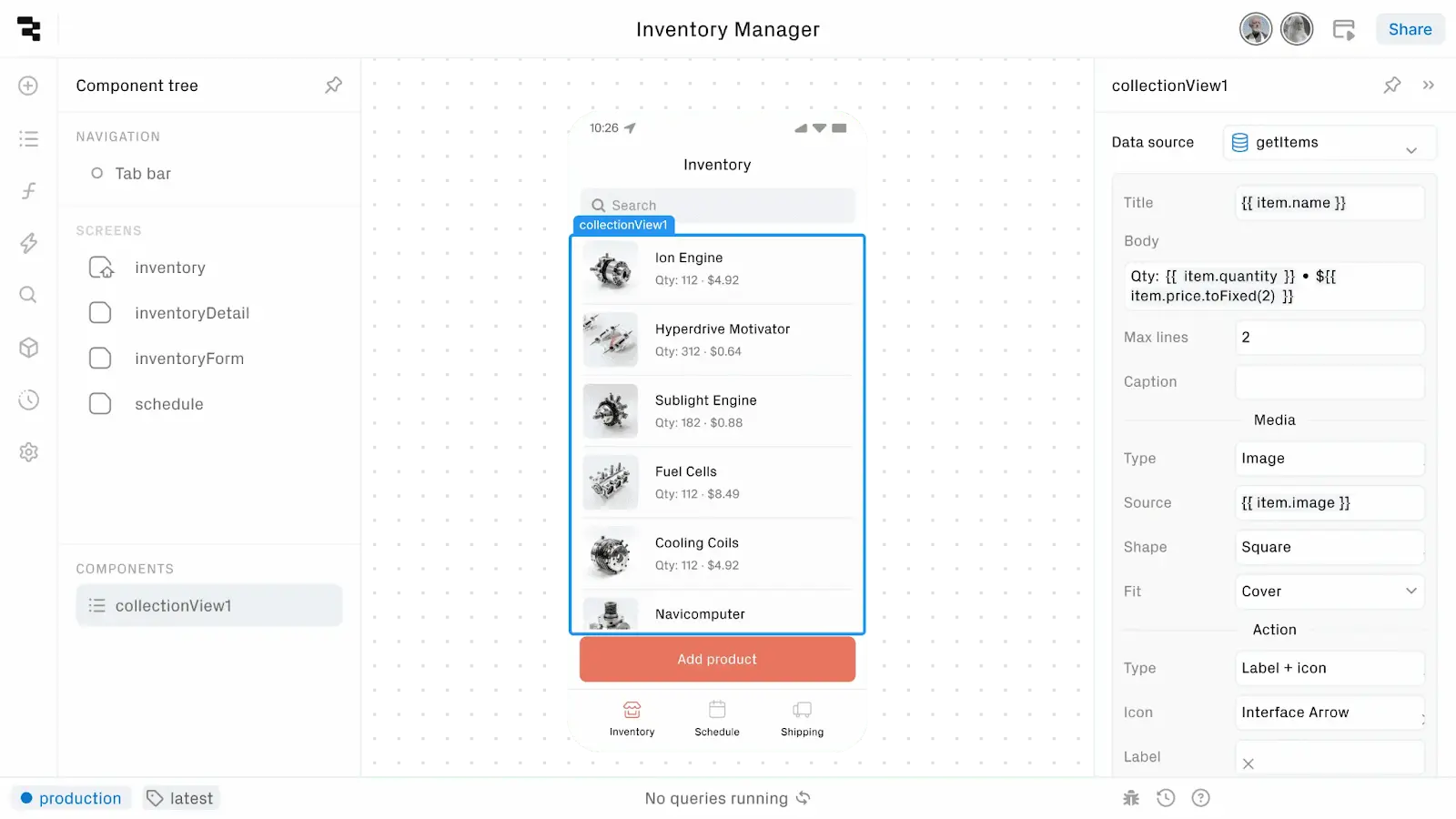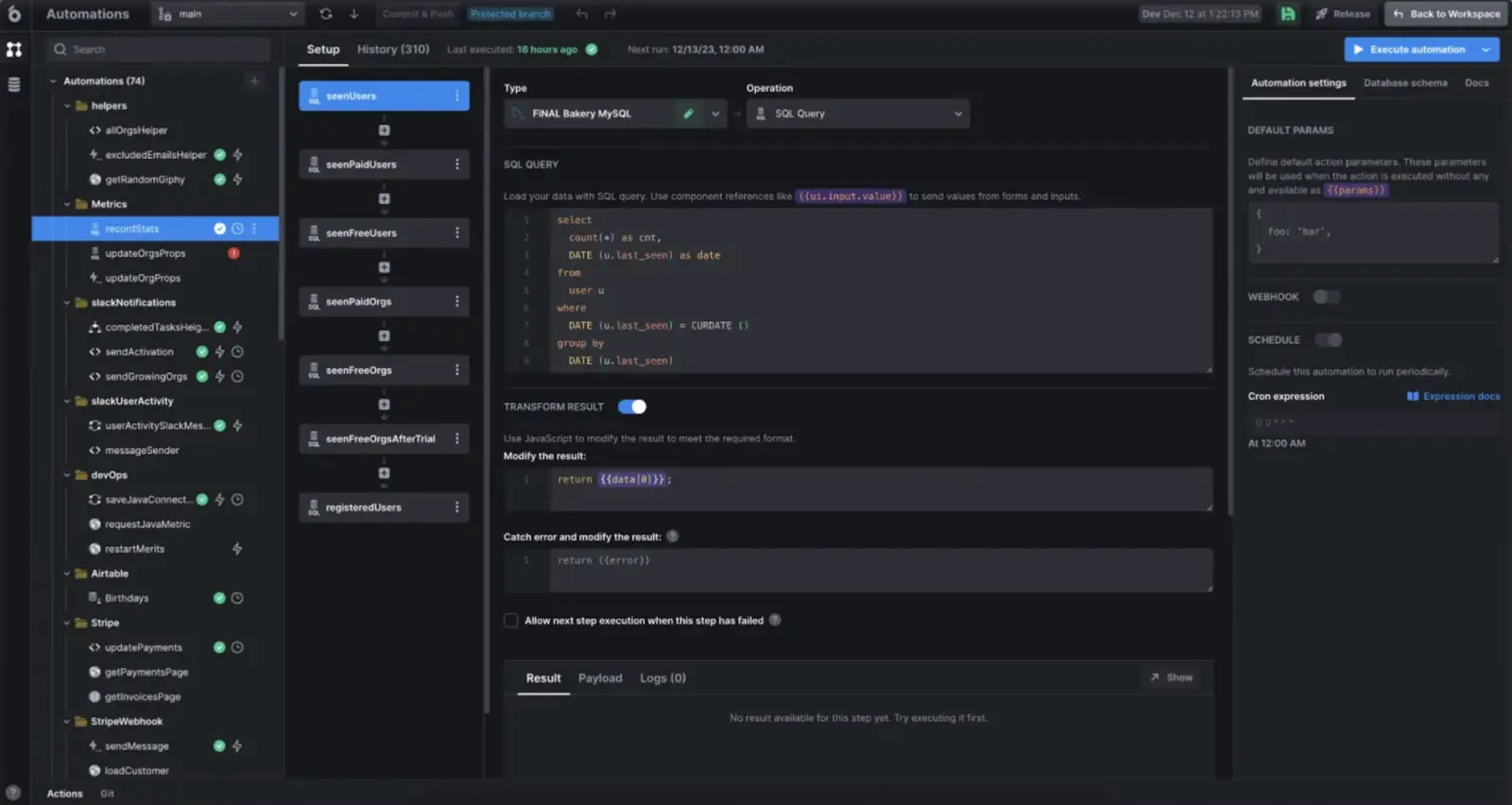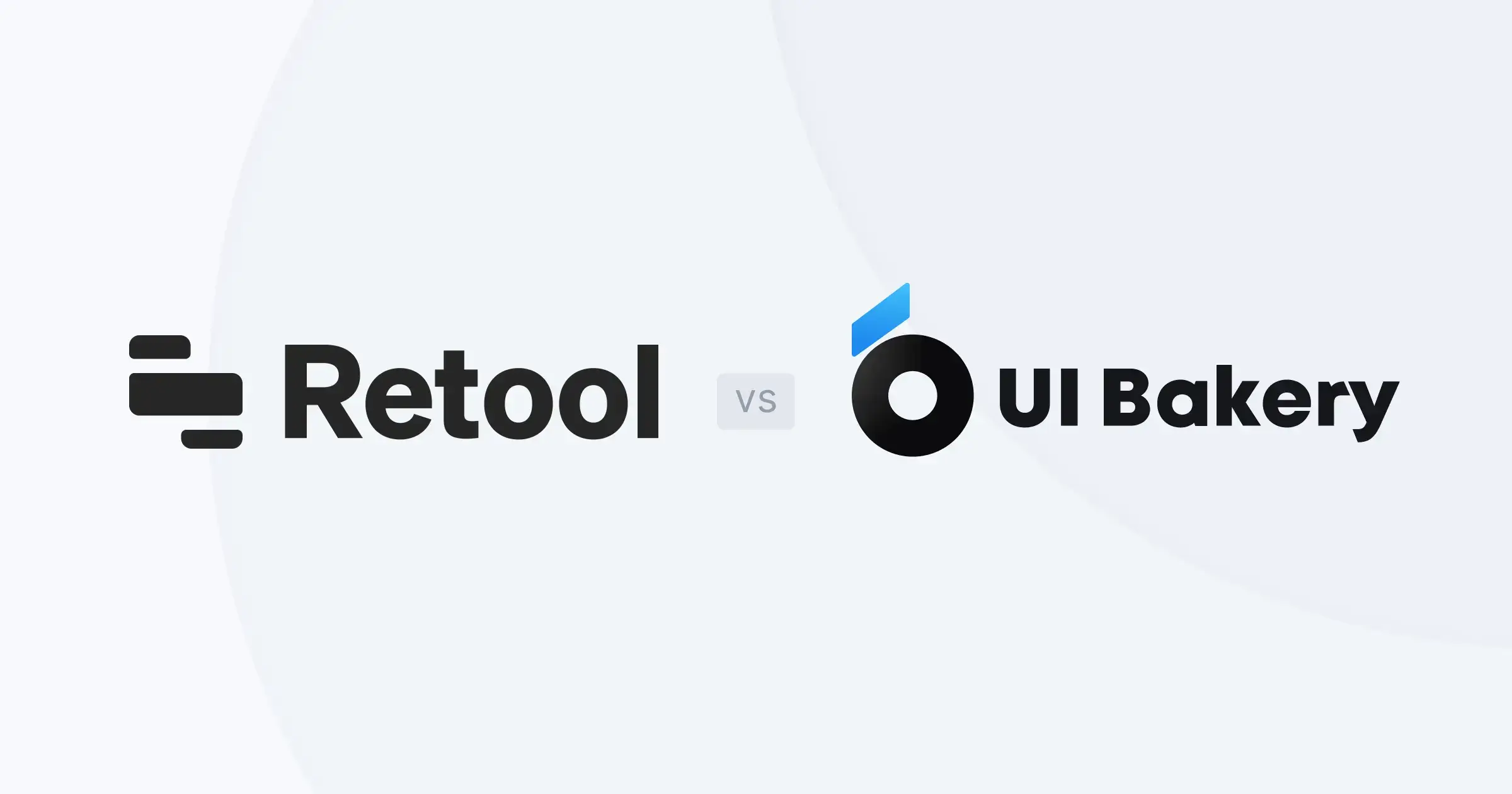
Budibase vs Retool: a сomprehensive сomparison of low-code platforms
In today's fast-paced digital world, businesses increasingly rely on low-code platforms to streamline their internal tool development, allowing both developers and non-developers to build applications with ease. Among the popular contenders in this space are Budibase, Retool, and UI Bakery as a potent Retool alternative.
While both platforms aim to simplify the process of building internal tools, they significantly differ in approach, features, and best use cases. Here we will compare Budibase and Retool across several key dimensions to help you choose the right platform for your needs.
Overview of Budibase and Retool
- Budibase: is an open-source, low-code platform enabling teams to quickly build internal tools and web applications. With strong support for custom integrations and automation, Budibase will be an ideal choice for developers looking for flexibility, scalability, and cost-effectiveness.
- Retool: is proprietary, business-focused platform designed for rapid internal tool development. Known for its drag-and-drop interface and powerful data-handling features, Retool, like UI Bakery, helps organizations connect APIs, databases, and other services quickly and efficiently.
Key features for comparison
Budibase

- Open-source: Budibase is fully open-source, so it is free to use for anyone.
- Pre-built components: the tool offers a range of UI components like tables, forms, and charts, enabling developers to quickly assemble applications.
- Database flexibility: the platform can be easily connected to multiple databases like MySQL, PostgreSQL, and CouchDB, or use Budibase’s built-in database.
- Self-hosting: Budibase offers the ability to host on your own infrastructure for enhanced data control and security.
- Automation: the tool integrates workflow automation features allowing users to set up triggers and actions, helping teams streamline tasks and processes.
Retool

- Data handling: Retool excels in integrating with external data sources such as APIs, databases, and cloud services (e.g., Firebase, MongoDB, PostgreSQL, etc.).
- Drag-and-drop UI builder: the tool allows teams to build internal tools by dragging and dropping components like tables, buttons, and charts.
- Custom JavaScript: Retool is also suitable for advanced users as it allows writing JavaScript to extend functionalities and make apps more dynamic.
- Cloud and on-premise: the end product can be hosted in the cloud or on-premise, offering flexibility for teams concerned with data privacy and control.
- Pre-built templates: just like UI Bakery, a strong Retool competitor, this tool provides many templates to kick-start app development, reducing time to deployment.
Ease of use
- Budibase: Budibase is relatively easy to use but may require more technical knowledge compared to UI Bakery. Its open-source nature means it offers great flexibility but can be more complex to set up and maintain.
- Retool: Retool offers a highly intuitive drag-and-drop interface for users with some technical experience. While it can be used without much coding, its best features are unlocked when combined with basic programming knowledge (especially JavaScript).
Customization and flexibility
- Budibase: Budibase is chosen with its flexibility and open-source nature. The platform allows users to customize almost every aspect of the platform, so Budibase is an ideal choice for developers who want full control over their applications.
- Retool: Retool is customizable, but mostly with its pre-built components. For deeper customization, developers can leverage JavaScript, making it powerful but also reliant on coding skills for advanced features.
Deployment options
- Budibase: Offers multiple deployment options including cloud hosting, self-hosting, or using Budibase’s managed hosting service. Its open-source nature provides more freedom for deployment.
- Retool: Can be deployed either on the cloud or on-premise. It’s flexible for organizations with strict data privacy policies but is largely managed by Retool in cloud environments.
Pricing model
- Budibase: As an open-source platform, Budibase is free to use for self-hosted applications. However users can explore paid plans to manage hosting and enjoy additional enterprise-level features, making it a cost-effective solution.
- Retool: Retool works based on a subscription model with different pricing tiers based on the number of users and features. It's more expensive than Budibase but has more features within plans for rapid enterprise-grade deployments.
Best use cases
- Budibase: Best for small to mid-sized businesses and development teams that need flexibility, control, and are comfortable with open-source technology. Ideal for building internal apps that require customization and automation.
- Retool: Best suited for mid-to-large enterprises looking for fast internal tool development with strong data-handling capabilities. Great for teams that need to integrate multiple databases and APIs with minimal coding.
Conclusion
Choosing between Budibase and Retool depends on your specific needs, team structure, and technical expertise. Budibase stands out for its open-source nature and flexibility, making it an attractive option for developers seeking full control. Retool offers powerful integrations and customization options suited for data-heavy internal tools.

You can also consider UI Bakery as it excels in rapid low-code development suitable for beginners, has more than 80 UI components and templates for every case. It focuses on polished design and ease of use, catering to teams that prioritize aesthetics and simplicity.






